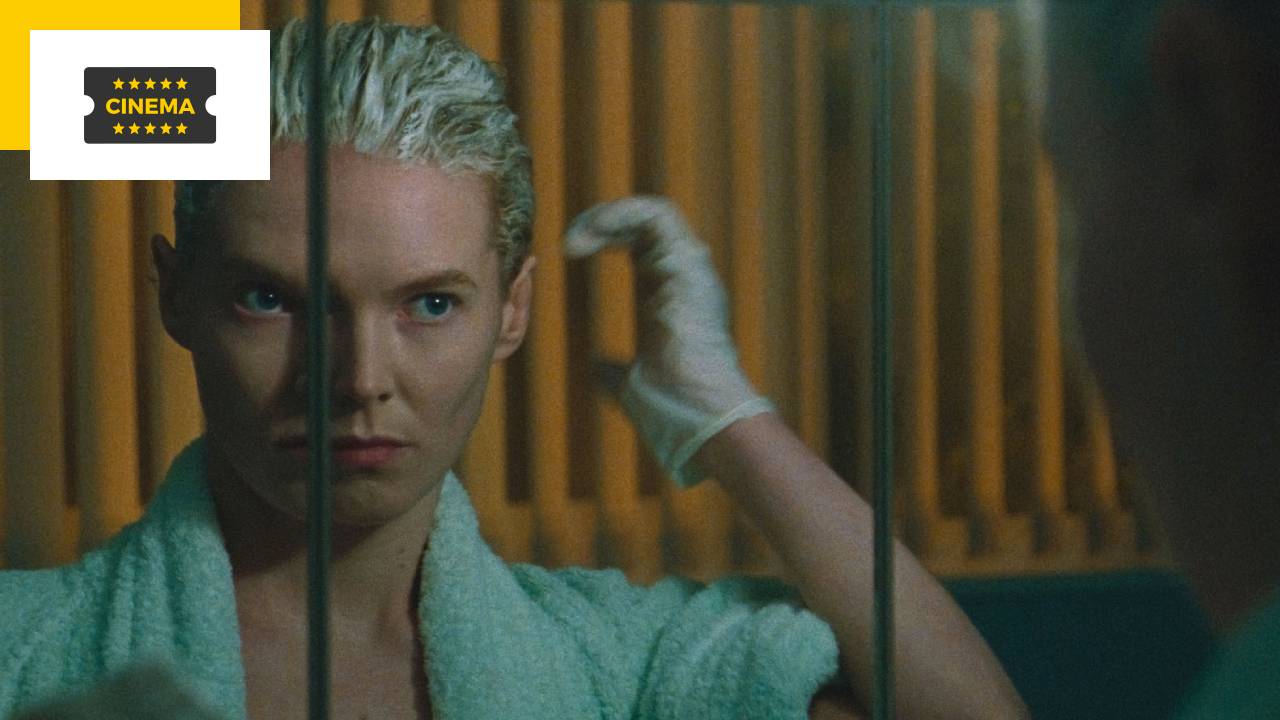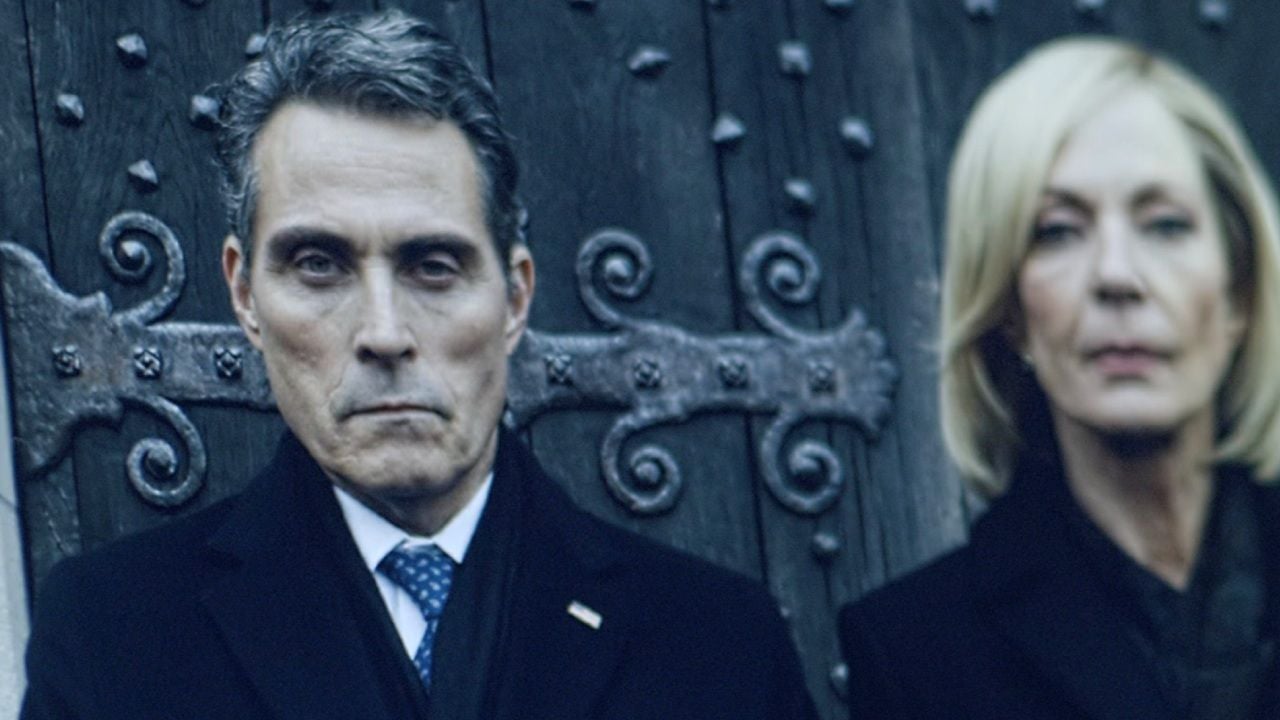What is it about?
1988, Margaret Thatcher’s England. Jean, a physical education teacher, is forced to hide his homosexuality, especially after he passes a law that stigmatizes the gay community. That’s without considering the new student who threatens to reveal the secret…
A few months after the release of Aftersun by Charlotte Wells in France, here’s a new piece from across the channel that testifies to the great vitality of a new direction in British cinema, more inclusive and young directors.
Blue Jean is Georgia Oakley’s first feature film, which has received a lot of praise, especially thanks to audience awards at international festivals, starting with the prestigious Venice Film Festival, where it won the Giornate Degli Authority’s People Choice Award.
Blue Jean, which took almost 4 years of work and research to film, focuses on a subject that is little known in France, but also little known in the United Kingdom, the country where the story takes place. At the heart of the film is Section 28*, which has stigmatized the LGBTQ+ community for almost 15 years, not so long ago when the law was repealed in 2003.
We caught up with screenwriter and director Georgia Oakley during her visit to Paris a few days ago to talk more about this film and the British wave that is reaching us.
AlloCiné: Can you tell us about the choice to make a film about this topic, Section 28*? As well as ignoring this part of recent British history, was there a desire to fill a lack of representation, in this case of the queer community?
Georgia OakleyScreenwriter and Director: Yes, both aspects. The film’s producer Helen Siffre and I were talking about how we wanted to see more films about certain aspects of the queer experience, like internalized homophobia and the fact that one can act differently at different times in our lives. This is called performativity, self-fulfillment. That is, when we are with our family, we will act like this, and then we will be a completely different person at work.
It was clear to me that this was a piece of British history that was on the carpet and it was something that had a huge impact on me.
We discussed these topics together, and while researching other topics, I came across an article about Section 28*. I’ve never heard of it. It was clear to me that this was a part of British history that was being swept under the rug, and it was something that had a huge impact on me, growing up in Britain, going to school while this law was in place. This subject seemed like a good way to explore these themes in a film, and I could somehow convey my experience of internalized homophobia, but through the eyes of someone outside of me and situated in this era. of the 80s.
We were able to meet some of the PE teachers who were training at the time and their stories generally inspired the main character Jean (Rosie McEwen). It was exciting to be able to connect things that are so far away from me because I was born the year this law was enacted (1988, ed.) and many things that are very personal to me.
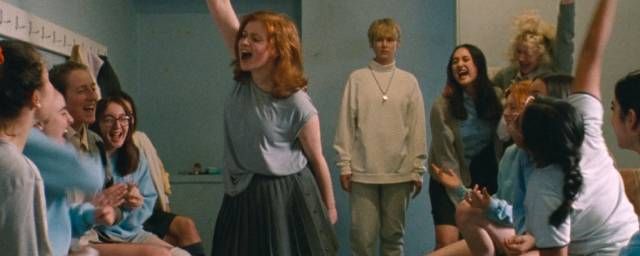
Was Section 28 information easy to access?
We have an LGBTQ+ archive center in London which has been very helpful and has given us access to many photographs. But there was never enough documentation. Originally we wanted to show an archive of one of the marches in Newcastle at the end of the film. I discovered an incredible speech given by a certain Bob Crossman, a Labor politician at the time. I found his speech and wanted to collect the archives to illustrate it. But I couldn’t find the exact archive I needed. There were a few pictures, but that’s about it.
All of these archives were shared with the film’s cast, like copies of the Pink Paper, for example. So both were a lot of archives, but at the same time, never enough. I actually stumbled upon an online academic journal that collected interviews with lesbian PE teachers, anonymously, about their experiences of working under Section 28. I contacted the person who conducted these interviews, who referred us to another person who happened to be one of the people who testified at the time. Then he connected us to other people.
We had to meet about fifty people on this topic.
From that moment there was a snowball effect. We had to meet about fifty people related to this issue in the end. There were not only sports teachers, but also activists, gay actors and politicians. It was important for the film, but also as a queer person in Britain. At first we wanted to make a documentary at the same time, with all the information we found, but we ran out of time.
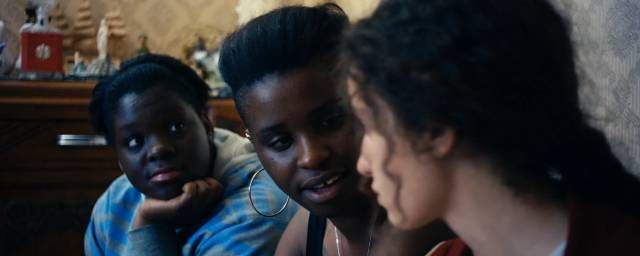
Huda Benjamin’s “The Gods”, “Camera d’Or” in 2016, is one of the French films that celebrated director Georgia Oakley.
Blue Jean features a few French people on its team, such as the producer Hélène Sifry, who you mentioned above, and your chief cinematographer, Victor Seguin. Was it voluntary, especially since I assume you are particularly interested in French cinema?
Growing up, I mostly watched English or American movies. But I still remember very clearly the moment when I discovered French and European cinema more broadly. It was there that I discovered cinema as an art and at the same time realized that it was the work I wanted to do.
I have always been particularly inspired by French cinema. When I met my producer, Ellen Siffre, that’s what connected us very quickly. We quickly realized that we were heading in the same direction.
Divines is the kind of film that couldn’t have been made in the UK.
I remember Houda Benyamina’s Divines had just won the Camera d’Or and we both loved that movie. It’s the kind of film that couldn’t have been made in the UK. We found a common language with this film. And it was interesting that she participated in this film with me, with her own experience as a queer woman who grew up in France and didn’t know Section 28. It was interesting because it seemed to represent an audience outside of Great Britain in the sense that it was all new to him.
So is chief cameraman Victor Seguin. Coming from Paris, he had an outside view of the city of Newcastle, where the film was shot. It gave you a fresh look at the city without seeing all the other movies that were made in that city. He was able to bring his own sensibility and that brings a certain purity. He was the perfect person for me as a cinematographer.
Going back to the French/Francophone cinema you mentioned above, do you have any French films in mind besides Divines that you mentioned?
I remember seeing Celine Sciama’s Tomboy in 2011 and that’s when I knew I wanted to make movies. I had a subscription to a DVD rental store. I remember I also borrowed the films of the Darden brothers. I also think of Jacques Audiard’s De rouille et d’os. and later, divine which inspired me a lot as the first feature film.
I studied French and Latin American cinema at the university. It opened my eyes to many things. But I’ve always been drawn to French cinema.
In Chantal Akerman’s cinema, authenticity and honesty appear
The film’s intent note also mentions Chantal Akerman as an influence. In France, his films have long been considered a kind of hidden treasure because they are hard to see! Gene Dielman is just out in theaters this Wednesday.
He was credited at the top of the Sight and Sound charts, so his influence is now more known than before. I find that there is an authenticity, an honesty in his cinema that we haven’t seen before. It makes me happy to know that his films are becoming more accessible.
Director Joanna Hogg held a series of screenings of her films, followed by a book about her in which she appeared (A retrospective guide by Chantal Ackerman, published by A Nos Amours, 2019, ed.). I remember getting this book and meeting Joanna Hogg during a ‘lab’ organized by BBC Films.
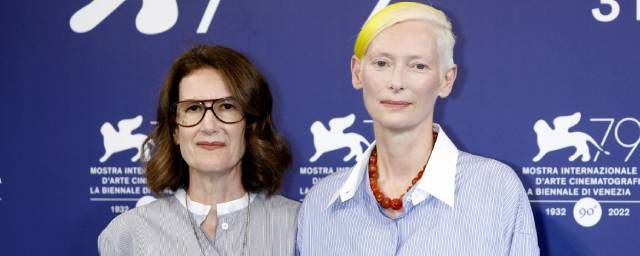
Directed by Joanna Hogg, with beloved actress Tilda Swinton
Maybe it’s a magnifying glass effect that only us journalists see, but it seems like a new wind is reaching us across the Channel, with Charlotte Wells, the director of Aftersun, your film and also the first films in the final light. Joanna Hogg’s …
It turns out that there is a connection between all these films. The team that worked on Joanna Hogg’s most recent films, Aftersun and Blue Jean, share the executive production portion. I think the people who make the choice to get these films funded, encourage more women to tell their stories, more racist people and anything that moves in the right direction, with public support like the BBC or the BFI (British Film Institute). .
I’m a huge fan of Joanna Hogg, and by the way, her short film Caprice plays in my movie when Jean and his girlfriend Vivian watch TV together and eat Chinese noodles.
Also, I met Charlotte Wells on the festival circuit. It is very positive that two queer British female directors are taking their first steps at the same time. We have a lot in common, so it was nice to meet. Now queer or racist filmmakers are emerging. All this is very interesting and changes are happening in a positive way.
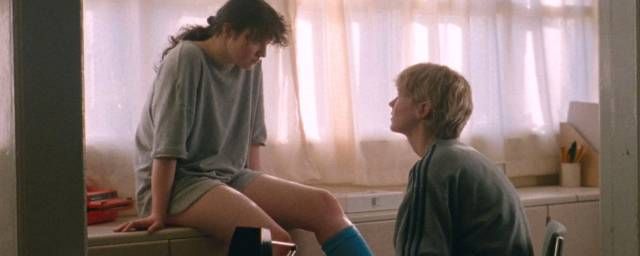
Your film will most likely generate a share of the experience from the audience… Can you tell us about any particularly powerful testimonials you may have received?
There are many teachers who have shaken me and declared me. You can feel how cathartic this experience of watching a movie can be for them. There are also young people who did not ask questions, but then they wrote to me. You can feel in their messages that something clicked while watching the movie and that they discovered things about themselves. It’s obviously very moving because the film also shows a young man trying to find his place and being told he doesn’t have to. It’s definitely annoying for me to hear such a reaction, because I didn’t expect it at all. There is also another type of reaction internationally, where I thank the film.
Find all the movie releases of the week
Blue Jean, written and directed by Georgia Oakley, starring Rosie McEwen, Carrie Hayes, Lucy Halliday…, opens in theaters this Wednesday, April 19, 2023.
Interview in Paris, Bridget Baronet, April 5, 2023
* This amendment, in effect from 1988 to 2003, states that “one shall not knowingly promote homosexuality or publish material intended to promote homosexuality” or “promote the teaching of homosexuality in any public school as a so-called About accepting a family relationship”.
Source: Allocine
Rose James is a Gossipify movie and series reviewer known for her in-depth analysis and unique perspective on the latest releases. With a background in film studies, she provides engaging and informative reviews, and keeps readers up to date with industry trends and emerging talents.

